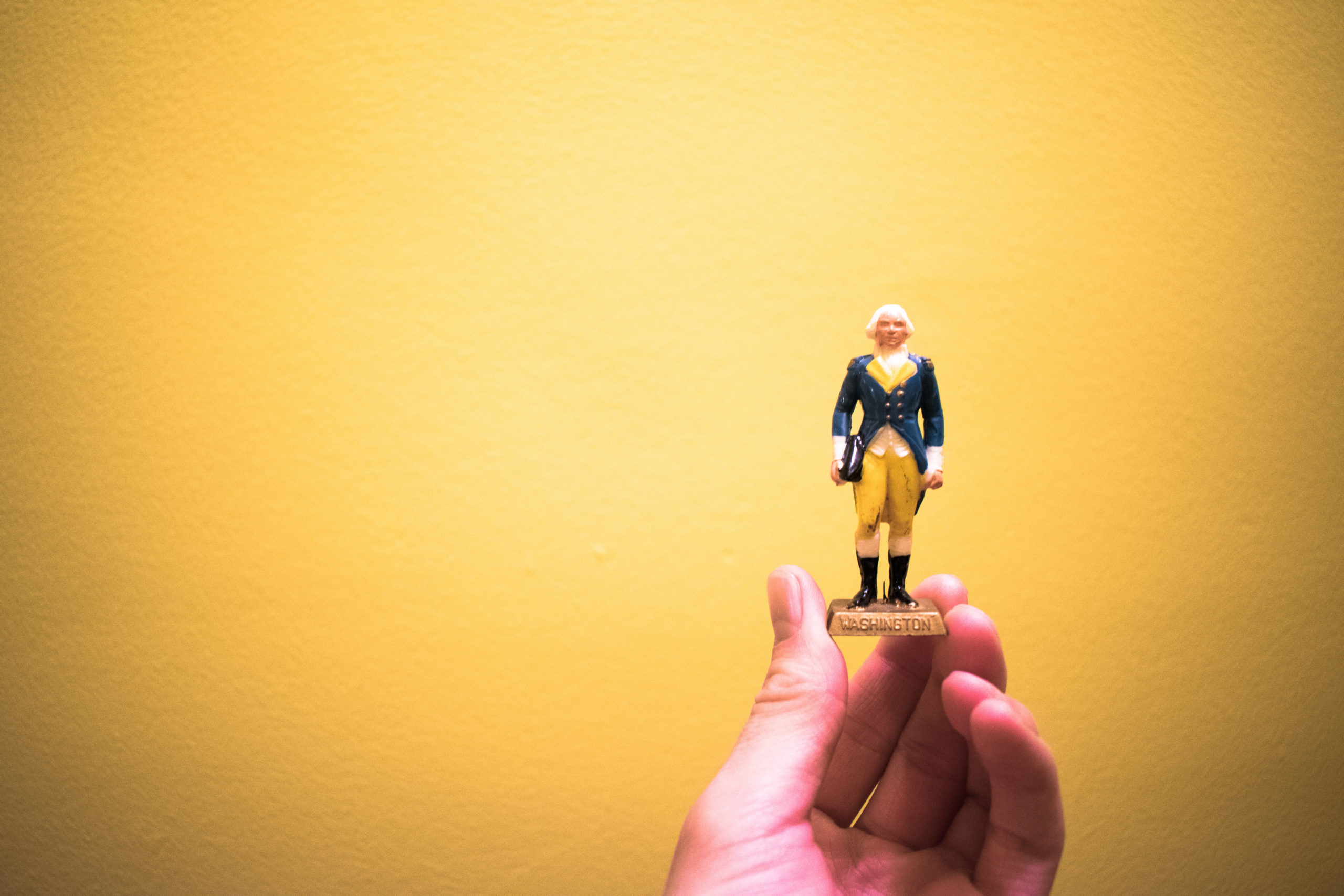The Original American Idol
When King George III heard Washington had refused to be king, he said, 'If that is true, he must be the greatest man in the world.' Originally published at The Wall Street JournalToday we merge Washington’s birthday with the birthdays of other presidents and submerge them all in clothing and appliance sales. But it was not always so. Americans in past centuries celebrated Washington’s birthday as a winter version of the Fourth of July.
Americans in Cambridge, Williamsburg, Richmond and Milton, Conn., were already celebrating Washington’s birthday even before the end of the Revolutionary War. After his death in 1799, hundreds of cities and towns held birthday events. Such celebrations briefly abated in the early 1800s, as John Adams and Thomas Jefferson were, while admiring of Washington, also envious of the awe in which Americans held him.
By the 100th anniversary of Washington’s birth in 1832, however, celebrations were once again held throughout the land. Pealing church bells, sermons, fireworks, marching bands and songs about Washington were all part of a holiday embraced without official sanction. Businesses closed, Washington’s picture hung in school houses, and Feb. 22 was a day of national rejoicing.
Throughout the 19th century, activist groups of all stripes used Washington’s birthday to further their causes. Antislavery activists claimed Washington since he had freed his slaves. Immigration supporters claimed him as a stalwart of religious, political and economic refugees. Advocates of Indian rights noted that after defeating the Iroquois in Revolutionary War battles, Washington restored their land and maintained their reservations. Striking Massachusetts shoemakers invoked his name as that of the first great American rebel. Temperance supporters praised his prudence, but given his fondness for Madeira, the connection there was less clear.
In 1880, Congress and President Chester Arthur proclaimed Washington’s birthday as an official national holiday, but the 20th century saw a gradual ebbing of public interest. As our country grew, new heroes emerged.
In 1968, the public-employee unions, seeking a three-day weekend, convinced Congress to move the commemoration of Washington’s birthday to the third Monday in February. This eventually led to what we now call Presidents Day, which marks the birthday not only of Washington but of Lincoln and all other presidents. By celebrating every birthday, we effectively celebrate none.
Washington’s contemporaries hailed his Revolutionary War victories at Trenton and Yorktown, but they honored him more for risking his fame, fortune and life in taking on military responsibilities for which he wasn’t paid—and then giving up command to return to his farm and family. The young American citizenry esteemed him for bringing together and presiding over the Constitutional Convention, but they honored him more for his steadfastness in holding the colonies together and facing down potential insurrectionists who might have seized the government and made him a military dictator. And while they appreciated him returning to public service as president, they honored him more for leaving an office that many expected him to hold for life.
Americans in the 18th and 19th centuries were unaware of, but they would not have been surprised by, what King George III supposedly said upon hearing that Washington, after winning the Revolutionary War, had refused to be king: “If that is true, he must be the greatest man in the world.”
Today we expect our leaders to seek and hold power, to take credit for their accomplishments, to demonstrate empathy, and to be facile with their written and spoken words, either their own or those of a speechwriter. Like the great Greek and Roman leaders, however, Washington was ambitious but learned to control it. He was too proud, in a good sense, to take credit.
Washington took advice from privates and generals, citizens and cabinet members, but his reserve kept them from feeling that they were his friends. When pressed to orate—as in his farewell toast to his officers or when he returned his sword to Congress after the Revolutionary War—Washington uttered some fine phrases, but he didn’t give a single speech to the Continental Congresses. The delegates chose him anyway as commanding general and gave him far-reaching powers. He also gave no speech to the Constitutional Convention, yet his presence moved the delegates to choose a presidential form of government, largely because they knew he would serve as the first chief executive.
Likewise, Washington was an able but not elegant writer. He never composed an essay on religious freedom. But his custom of attending church services of different Christian denominations, and his letter to the Jewish congregation of Newport, R.I., helped bring fractious religious groups together in the new country. He never wrote an essay on the evils of slavery. But by emancipating his slaves after his death and providing for their support and education, he set an example noted repeatedly in succeeding decades.
In the early republic, Americans idolized virtues molded and displayed over the years. Today we seem excited by new persons and talents every month.
Our ancestors expected that America would produce other great leaders. But they celebrated Washington’s birthday because, as the Connecticut Courant observed in 1791, “Many a private man might make a great president; but will there ever be a President who will make so great a man as WASHINGTON?”
Mr. Miller, a former U.S. Ambassador at Large and visiting scholar at the University of California at Berkeley’s Institute of Governmental Studies, is a senior fellow at the Discovery Institute. He is writing a book about Washington and civilian supremacy over the military.
